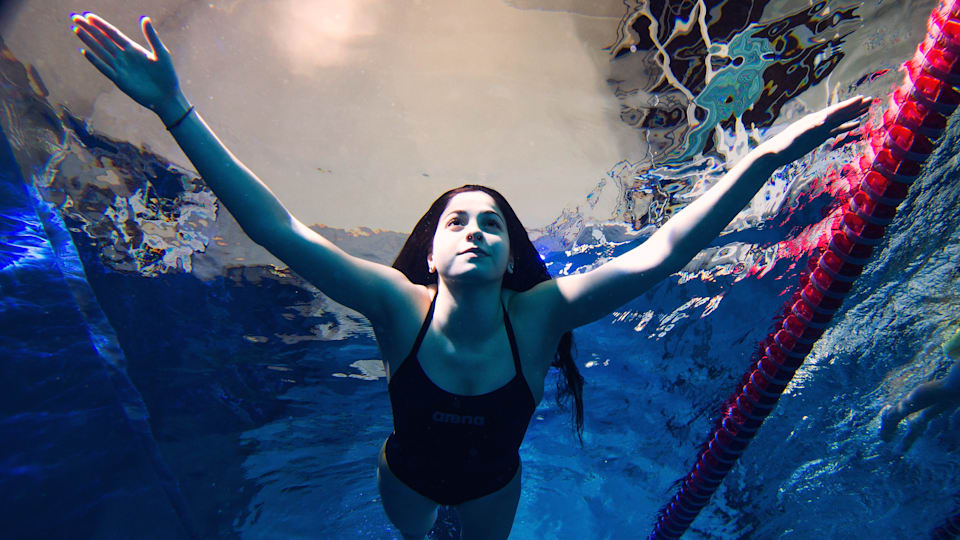
Yusra Mardini escaped from a civil war in home of Syria in August 2015.
With her sister alongside, it was an arduous journey. A plane from Syria to Lebanon, from there to Turkey. In Turkey, they boarded a boat to Greece.
That boat ride was supposed to last 45 minutes. It was just a 10km ride. The boat, meant for six to seven people, was already broken when 20 people boarded. Twenty minutes in, Mardini found herself, her sister, a friend of her father’s and two others in the water, pushing the broken boat ashore after more than three hours.
“The whole way, you can just hear all of our prayers in one voice,” Mardini told Olympic Channel Tuesday in an Instagram live interview.
Her journey to her final destination, Germany, continued on foot, in buses and even with the help of smugglers. Less than a year later, Mardini competed as part of the first-ever IOC Refugee Olympic Team at Rio 2016.
“Sport was our way out,” said the 22-year-old. “It was kind of what gave us hope to build our new lives.”
Mardini says she has built an incredible bond with her fellow Refugee team members and that they still communicate in a WhatsApp group today.
“The memories I made with everyone is so great,” she says. “Every time someone does something great, we tell each other.”
Those congratulations would also include Mardini, herself, of course, who has recently started doing swimming camps for refugee children. Though she could not attend the first camp in December 2019, she says she was moved by what she saw virtually.
“It was my first my first ever charity project and it was my first ever swimming school,” Mardini explained. “I was really disappointed not to be a part of it… but this is not the last time I'll do that. I will do that again.”
Something else Mardini hopes to do again is go to the Olympic Games. As the year flipped from 2020 to 2021 and the Games draw near, she says she’s keeping a positive mindset for the months ahead.
“I was actually very excited when I saw [that it was] 200 days to go,” Mardini said. “I'm like, it's so close, I'm so scared.
“I’m also excited because we've been working and training the whole time,” continued Mardini. “It's obviously different than normal days with a pandemic and all of that is happening. But we are trying as athletes to be as positive as we can, to work as hard as we can for our dreams.”
Since swimming in the Rio Olympic Games, Mardini has shared her story – both in the form of a best-selling book titled ‘Butterfly’ and an upcoming biopic.
“I tell my story because I want people to understand that sport saved my life,” said Mardini.
But it’s also much more than that. She hopes that her story can remind the world that refugees are more than just stories in the news, they are people too.
“I always tell people that they are normal, we are normal. We do not come from a country that is poor. That's not true,” said Mardini.
“That's not true. We did not come here without dreams. We already have so many doctors, engineers, swimmers. I always try to tell people it's normal. We have everything you have.
“I also want to remind everyone that refugees are still in the camps, and they really do need our help.”
By the Olympic Channel
